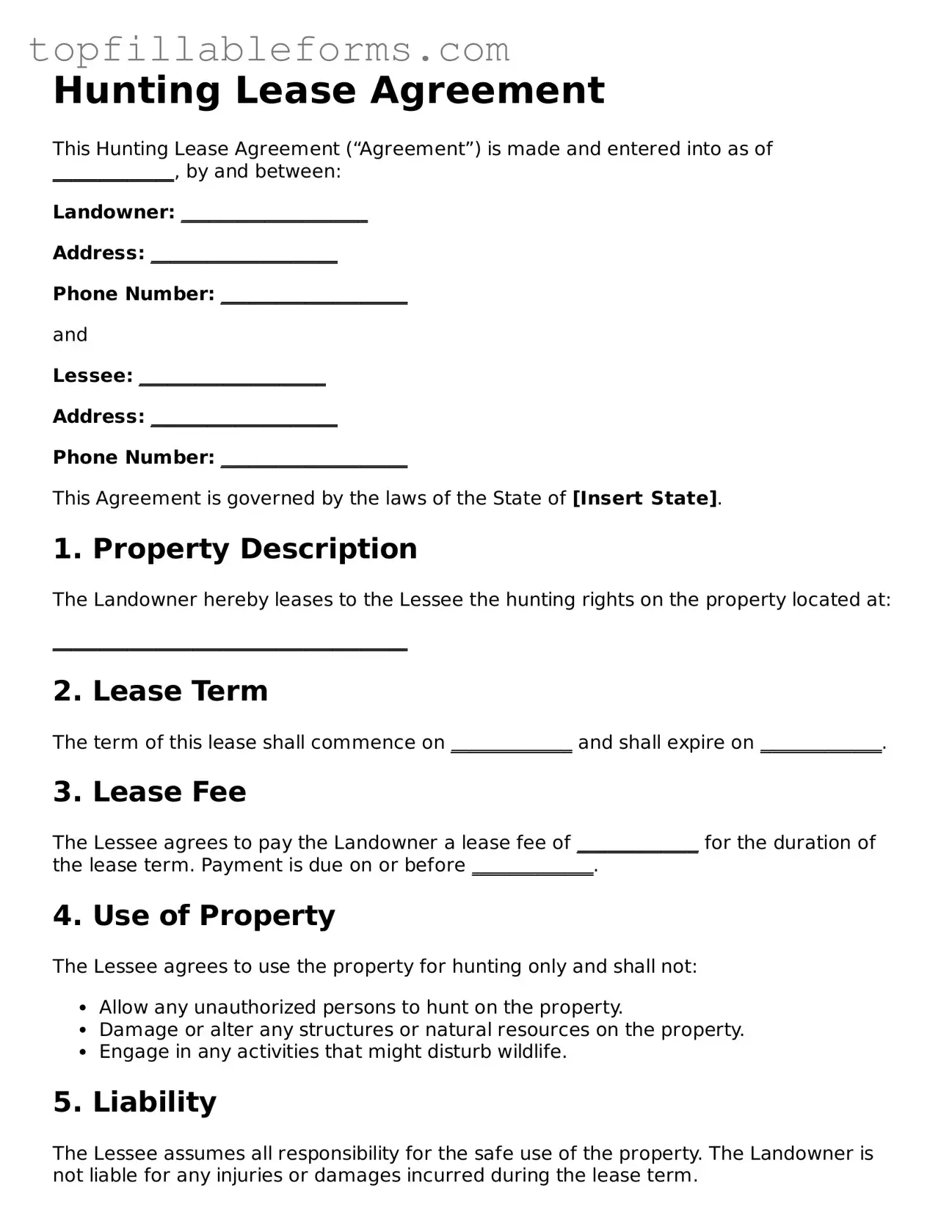Free Hunting Lease Agreement Form
A Hunting Lease Agreement is a legal document that outlines the terms under which one party can hunt on another party's land. This agreement protects both the landowner and the hunter by clearly defining rights, responsibilities, and any restrictions. Understanding this form is essential for anyone looking to engage in hunting activities on private property.
Open Hunting Lease Agreement Editor Here

Free Hunting Lease Agreement Form
Open Hunting Lease Agreement Editor Here
Finish the form now and be done
Finish your Hunting Lease Agreement online by editing, saving, and downloading fast.
Open Hunting Lease Agreement Editor Here
or
▼ PDF File
